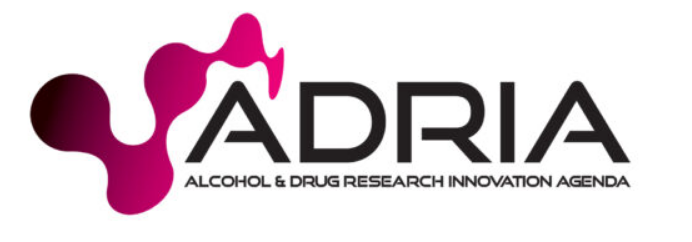
Alcohol and Drug Research Innovation Agenda (ADRIA) is an initiative of the Victorian State Government, providing grants to support alcohol and other drug (AOD)-focused, innovative and responsive research to improve social and health outcomes for Victorians by informing program design, service excellence and policy development.
The ADRIA program is a unique opportunity for the Victorian AOD sector to participate in, contribute to and lead research focused on reducing harms associated with AOD. The grants aims to establish Victoria as a national leader in AOD research.
Current ADRIA Projects

Can extended-release guanfacine improve outcomes for young people seeking treatment for problematic cannabis use?
Lead organisation: YSAS
Project Partner: Orygen Youth Mental Health
This innovative research project trials extended-release guanfacine as a treatment for problematic cannabis use among young people aged 15–21 in residential youth withdrawal settings. Guanfacine, a medication that has shown promise in reducing cannabis withdrawal symptoms in adults, is being studied here for the first time with a youth cohort. Led by YSAS—Victoria’s largest youth alcohol and other drug service—in partnership with Orygen Youth Mental Health, the project aims to explore the potential of pharmacotherapy to improve withdrawal outcomes and support longer-term recovery for young people experiencing cannabis dependence.
Enhancing collaboration between an AOD service and primary care to improve treatment of benzodiazepine dependence: evaluating a consumer-led approach to de-prescribing
Lead Organisation: Reconnexion
Project Partner: Deakin University
Description: This project explores how to strengthen collaboration between GPs and Victoria’s state-wide specialist benzodiazepine treatment service. It evaluates the implementation of a consumer-led de-prescribing tool designed to support GPs in responding to benzodiazepine and z-drug dependence. By testing this tool in primary care settings, the project aims to improve GPs’ knowledge and confidence, increase the rate of safe de-prescribing, and boost referrals and consultations with the specialist service. Ultimately, the project seeks to build more integrated care pathways that empower both clinicians and consumers in addressing long-term benzodiazepine and z-drug use.
Exploring how LGBTQ communities experience, conceptualise and respond to drug-related harm
Lead Organisation: Thorne Harbour Health
Project partner(s): Australian Research Centre for Sex, Health and Society (Latrobe University)
Description: This project investigates how LGBTQ communities in Victoria experience, understand, and respond to drug-related harms, and what shapes their engagement with alcohol and other drug (AOD) treatment services. Through interviews and focus groups with LGBTQ people who use AOD services in both metropolitan Melbourne and regional areas, the project explores concerns, perceptions, and barriers that may influence treatment access and uptake. By centring lived experience, the research aims to inform more inclusive, culturally safe, and responsive AOD service delivery for LGBTQ communities across the state.
Qualitative interviews with queer people will be conducted to determine about how they experience, understand and respond to drug-related harms in themselves and others.
Managing substance use disorder in the presence of ADHD: does active management of ADHD improve outcomes?
Lead Organisation: Goulburn Valley Health
Project partner(s): Swinburne University
Description: This project investigates whether actively managing ADHD can improve quality of life and reduce substance use among people seeking help for Substance Use Disorder (SUD). Based in Shepparton, the study trials a specialist clinic that integrates AOD and mental health services to better support individuals with comorbid SUD and ADHD. The clinic provides comprehensive care, including assessment, psychoeducation, medication, and ADHD coaching. The project also explores whether this integrated approach improves access to appropriate treatment, addressing the complex needs of people navigating both conditions and informing future models of collaborative care across the AOD and mental health sectors.
Past ADRIA Projects

Enhancing pharmacist involvement in care (EPIC) MATOD implementation study
Lead organisation: Peninsula Health
Project partner(s): Monash Addiction Research Centre
This project developed and trialled a shared-care model for Medication Assisted Treatment of Opioid Dependence (MATOD), involving collaboration between prescribers and pharmacists. While MATOD is an effective and evidence-based treatment, access remains limited due to a shortage of prescribing clinicians. Shared-care models—proven successful in managing other chronic conditions—offer a promising solution. This project was the first trial of a prescriber-pharmacist shared-care model for MATOD in Australia, and aimed to expand treatment capacity and improve access for people experiencing opioid dependence.
Outputs:
- EPIC-MATOD Pharmacy Quick Guide and Site Initiation Pack
- EPIC-MATOD Mentor Guide
- EPIC-MATOD Guide for Prescribers
- Collaborative Treatment Agreement and Care Plan (CTACP)
- Reinduction Daily Monitoring form
- Reinduction Protocol
NB: EPIC-MATOD resources are only available to those who have completed the EPIC-MATOD training. Please contact marc.info@monash.edu for more information
Journal articles
Grist, Cheetham, Jackson et al (2024) ‘Clinical effectiveness of pharmacist administration of long-acting injectable buprenorphine: Findings from the EPIC_MATOD study’, Letter to the Editor, Drug and Alcohol Review, vol. 43.
Nielsen, S., Graham, F., Hadi, M.H., Grist, E., Rowland, B., Jackson, J., Lord, S., Dostal J., Wood, P., Morgan, K., Petrie, D., Cheetham, A. A multisite implementation-efficacy trial of a pharmacist-led model of collaborative care for Medication Assisted Treatment for Opioid Dependence: Outcomes of the EPIC-MATOD trial. (manuscript under review)
Evaluating an online relationship program to enhance outcomes for people in alcohol and other drug treatment
Lead Organisation: Odyssey House Victoria
Project Partner(s): Deakin University
Description: This project trials OurRelationships, a relationship-focused therapeutic program, with clients in residential alcohol and other drug (AOD) treatment settings. Research shows that problematic substance use is often linked to distress from insecure, conflicted, or violent relationships, and that relationship therapy can significantly improve wellbeing. However, such therapy, is frequently out of reach for marginalised and rural communities. This trial assessed whether OurRelationships improves participants’ relationship outcomes, mental health, quality of life, and reduces relapse or AOD use, offering a potentially scalable intervention for people navigating both substance use and relationship challenges.
Journal articles
Karantzas, G. C., Staiger, P. K., Romano, D. A., Curtis, A., Bruscella, C., Miller, P. G., Gruenert, S., Toumbourou, J. W., Doss, B. D., & Christensen, A. (2024). A group version of the OurRelationship program within residential substance use treatment: preliminary evidence for improving responses to romantic relationship conflict for those dealing with substance misuse. Frontiers in psychology, 15, 1307640. https://doi.org/10.3389/fpsyg.2024.1307640
Toumbourou, D. E. M., Curtis, A., Romano, D., Gruenert, S., Zavrou, N., Long, C., … & Doss, B. (2021). A Pilot evaluation of the OurRelationship Program within Alcohol and other Drug Residential Treatment Services in Australia.
Curtis, A., Booth, B., Gruenert, S., Long, C. M., Karantzas, G., Harries, T., … & Miller, P. G. (2021). Identified support needs for intimate partner violence engagement in an alcohol and other drug treatment sample. Journal of Substance Use, 26(6), 586-593.
A randomised controlled trial of a cognitive “brain-training” smartphone app to help reduce alcohol use during alcohol treatment
Lead Organisation: Turning Point (Eastern Health)
Project Partner(s): St Vincent’s Hospital, Uniting VicTas, Star Health (Better Health Network), Monash Health, Odyssey Victoria.
Description: This project trialled a smartphone-based Approach-Avoidance Training (AAT) app to help reduce alcohol cravings and relapse risk among people in alcohol treatment. Traditional therapies focus on conscious decision-making, but AAT targets the subconscious “auto-pilot” responses to alcohol cues. By repeatedly practising responses to alcohol-related images, AAT has been shown to reduce relapse after treatment. This study ran a double-blind randomised controlled trial with 300 clients across six Victorian AOD services, testing the app’s effectiveness against a control. If successful, the AAT app could offer a scalable, accessible tool to support recovery where and when needed.


